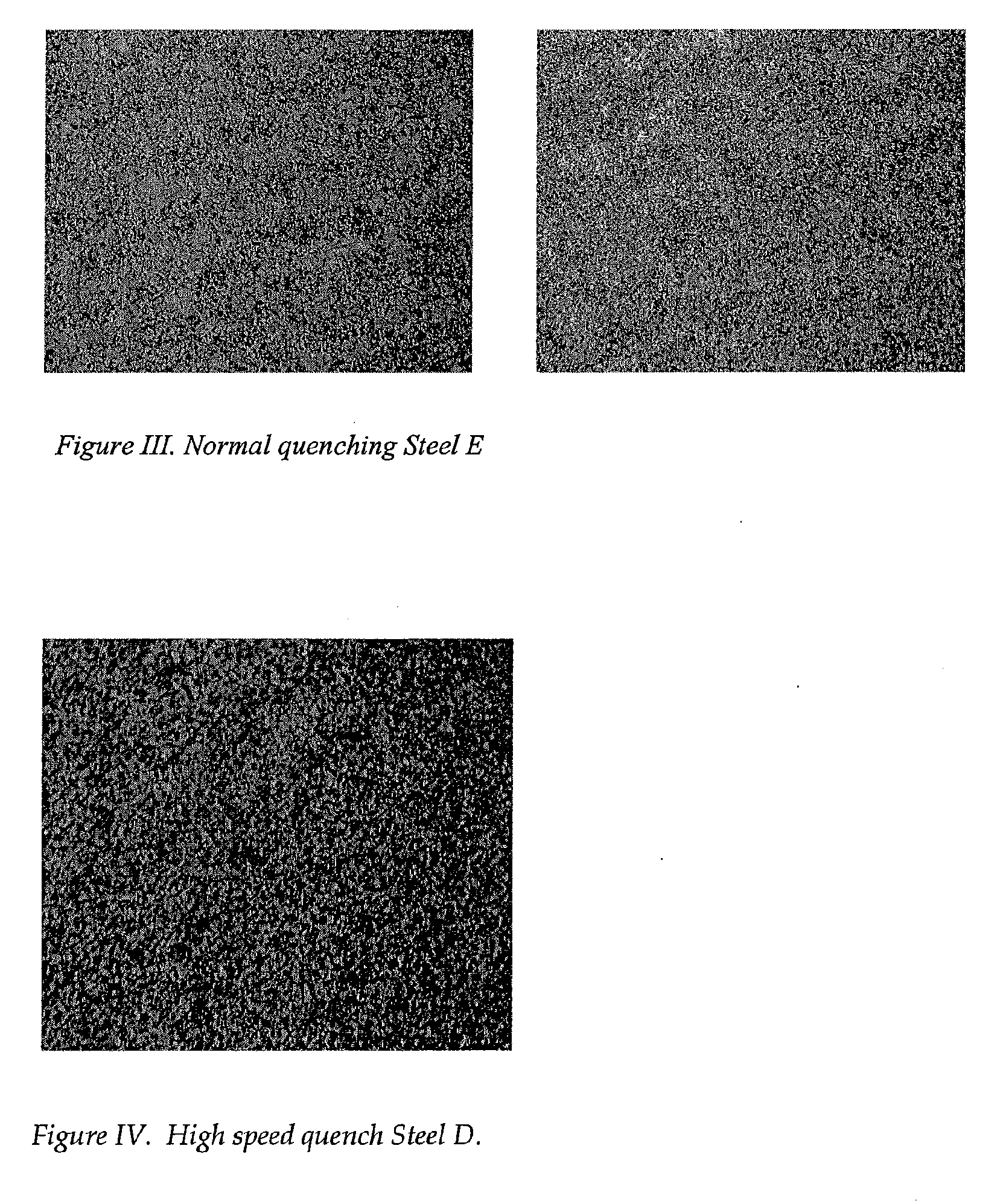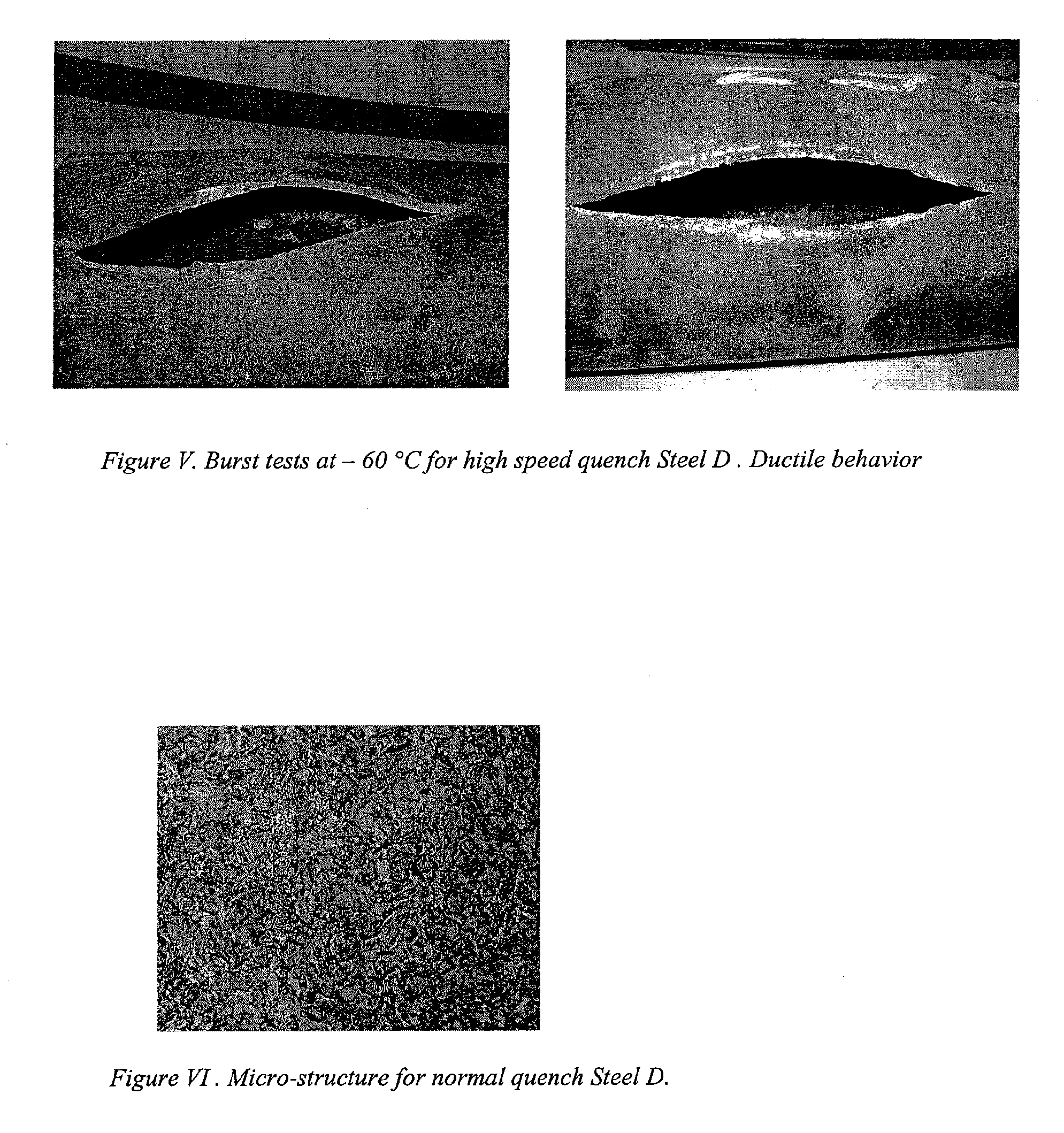Low carbon alloy steel tube having ultra high strength and excellent toughness at low temperature and method of manufacturing the same
a low temperature, carbon alloy steel tube technology, applied in the field of low carbon alloy steel tube, can solve the problems of airbag system, inability to meet certain airbag inflator applications, relatively low mechanical properties, etc., and achieve rapid induction austenizing/high speed quench/no temper technique, high tensile strength, and high tensile strength
- Summary
- Abstract
- Description
- Claims
- Application Information
AI Technical Summary
Benefits of technology
Problems solved by technology
Method used
Image
Examples
Embodiment Construction
[0029]While the present invention is susceptible of embodiment in various forms, it will hereinafter be described a presently preferred embodiment with the understanding that the present disclosure is to be considered an exemplification of the invention and is not intended to limit the invention to the specific embodiment illustrated.
[0030]The present invention relates to steel tubing to be used for stored gas inflator pressure vessels. More particularly, the present invention relates to a low carbon ultra high strength steel grade for seamless pressure vessel applications with guaranteed ductile behavior at −60° C., i.e., a ductile-to-brittle transition temperature below −60° C., and possibly even as low as −100°.
[0031]More particularly, the present invention relates to a chemical composition and a manufacturing process to obtain a seamless steel tubing to be used to manufacture an inflator.
[0032]A schematic illustration of a method of producing the seamless low carbon ultra high s...
PUM
| Property | Measurement | Unit |
|---|---|---|
| ductile-to-brittle transition temperature | aaaaa | aaaaa |
| tensile strength | aaaaa | aaaaa |
| yield strength | aaaaa | aaaaa |
Abstract
Description
Claims
Application Information
 Login to View More
Login to View More - R&D
- Intellectual Property
- Life Sciences
- Materials
- Tech Scout
- Unparalleled Data Quality
- Higher Quality Content
- 60% Fewer Hallucinations
Browse by: Latest US Patents, China's latest patents, Technical Efficacy Thesaurus, Application Domain, Technology Topic, Popular Technical Reports.
© 2025 PatSnap. All rights reserved.Legal|Privacy policy|Modern Slavery Act Transparency Statement|Sitemap|About US| Contact US: help@patsnap.com



